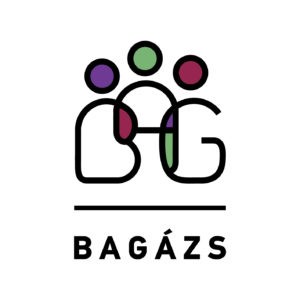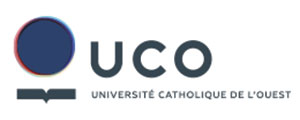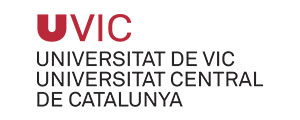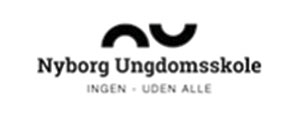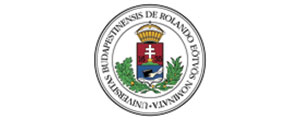Description of the project
the summary
In all the countries of the world a significant proportion of youngsters have serious learning difficulties that can lead to an absence of a diploma at the end of the period of compulsory schooling and the interruption of their studies. The early school leaving (ESL) makes it difficult for them to become socially and professionally integrated. The consideration of the educational institutions or even of parents is uneven across countries and remains globally insufficient. Among the twelve key measures to reduce school ESL on European level (2013) is to “support cooperation between schools, local communities, parents and pupils in school development and in initiatives to reduce ESL”. The project aims to respond to this recommendation. It aims to open to synergies with organizations providing formal and non-formal education and to improve transition between the different sectors of education, training and youth at local, national and international level. The project provides tools and practices to teachers, to youth workers and parents to develop their collaboration to actively participate in the fight against early school leaving. The final result of the project is the creation of a tested and validated common training program for teachers and youth workers that takes into account the specificities of the territories. This published program will be complemented by a guide for teachers and youth workers.
…The project first brings together European participants from Denmark, Spain, Hungary, France who have been working for several years on issues of inequality in school, inclusion or early school leaving.
Territories linked to the geographical and socioeconomic disparities and with the highest number of youth in difficulty will be favored: urban areas with a high proportion of youngsters with a migrant background or Roms, the youth victims of social problems or delinquency, cities in industrial decline, or isolated and marginalized rural areas. The strategic partnership project is organized in three years.
During the first year the census of good practices and statistical data on the ESL on the territories are conducted. A joint training program for teachers and youth workers on the one hand and the sessions for parents on the other hand are designed. During the second year the sessions for parents in each country and the training course will be implemented. The training course is divided into two mobility of 15 selected teachers and youth workers from each country. It is a hybrid training combining the use of a digital platform (in each country) and face-to-face sessions (during the mobility). For parents, sensitization sessions for their children’s school accompaniment are organized. Once formed, the various educational actors and parents will implement an experience of collaboration and support for young people during the third year. The project develops and evaluates the new practices to cater for the needs of disadvantaged groups and to deal with differences in learning outcomes linked to the geographical and socioeconomic disparities.

Assets of the project
The project initially gathers European participants from Denmark, Spain, Hungary and France who have been working for several years on the question of academic inequalities, integration and early school leaving. The areas with the highest ratio of students will difficulties will be prioritized: urban areas inhabited by children born abroad or Roma children, cities in economic decline, isolated rural or disenfranchised regions, neighborhood with a high ratio of young drop-outs who are victims of social issues or criminality.
The participations of several stakeholder institutions on the question of academic failure and early school leaving (school, cultural, social and athletic associations, parent associations, universities) is a major asset for the success of the project. The diversity and the complementarity of these partner or associated institutions will allow to establish or to strengthen in each region a permanent network of different actors and services in order to support and accompany the youths with difficulties. The project uses pedagogical approaches focused on the activity of those who have been trained in the program, on the exchanges of practices at a national and international level.
The training course aims to improve the competences of teachers and youth workers. The project uses pedagogical approaches centered on the activity of the trainees, the exchange of practices at international level as well as at local or national level. The inverted classroom model, which is based on a personal work of the trainee based on online documents and on questioning and face-to-face exchanges, especially between teachers, youth workers and training managers, will be used. This type of teaching methods is particularly suitable for professional development. The mobility will promote collaborative and holistic approaches to teaching and learning and will strengthen their professional, personal and intercultural skills and exchange on their practices. The good practices in dealing with diversity in the classroom will also be proposed.
…The collaboration between teachers, youth workers and parents to implement the learning outcomes of the following year will be a lever to change the practices of professionals and parents’ behaviors and thus strengthen their links for the benefit of youngsters.
The evaluation that will be conducted at the end of the period will validate the relevance of the training.
The participation of various institutions, stakeholders on the issue of ESL (school, youth clubs, cultural and sports associations, associations of parents, universities) is a major asset for the success of the project.
AIMS AND OBJECTIVES
- To contribute in a significant way to the improvement of the academic results of the young people through the improvement of their basic skills.
- To reinforce the accompaniment of the students’ families to include them more within the learning process.
- To train educative actors for the accompaniment of young people with less opportunities.
- To contribute to the professional development of teachers, youth workers and educators.
- To reinforce the family-school-community relationship through the participation of all the actors in the territory to a project, which brings a global answer to the needs of young people.
- To raise awareness among the children and their families of the existence of socio-cultural and educative resources in their environment and to facilitate their daily use.
- To contribute to the (auto-) critical debate on centers and their roles in the reproduction of extant social inequalities and the mechanisms which facilitate it
PARTNERS
COORDINATOR
The Catholic Western University (France)
Created in 1875, the Catholic Western University (UCO; French: Université Catholique de l’Ouest) is one of the oldest universities in the Grand Ouest region. It enrolls 11 000 students over 8 campuses in the West of France and overseas. The research group PESSOA (Pédagogies Socialisation et Apprentissages) is affiliated to the Faculté d’Education (Education department) of UCO. PESSOA is composed of about twenty university lecturers and researchers and about twenty associated researchers, doctorate students and a few professionals. It mainly focuses on modes of education, socialization, training and knowledge assimilation.
The team’s unifying theme is “To educate: Mutations, Vulnerabilities, Permanencies” which is divided into three distinct areas: Area 1: educaiton, intervention, inclusion; Area 2: teaching, pedagogy, didactics and learning; Area 3: education and health
PARTNERS
Universitat de Vic University of Vic (Spain)
The University of Vic (Uvic-UCC) was founded in 1997. It is an independent university under public supervision. It is affiliated to the Balmes Univeristy Foundation. The University has 6456 initial training students and 9312 continuous training students. It has 400 teachers and researchers in 5 departments: education, health, medicine, sciences and technologies, economics and communication. The department of education is the largest within the university. It has several research groups including the GREUV which focuses on educational research. The main expertise of GREUV is its capacity to build projects on inclusive school, the family and the community. These perspectives allow to reduce inequalities and allow to fight against early school leaving. Its skills are also linked to the GREUV researchers’ experience in the subject of inclusion training for teachers. Schools, teachers, local authorities, foundations and decision-makers consider these researches and the spreading of the results of the projects related to that question to be very important. The group has been recognized for its excellency as a research group by the Catalan government since 2012.
Nyborg Ungdomsskole Nyborg Youth School (Danemark)
Youth School is a unique school in Denmark. It offers extracurricular activities, clubs and optional classes. These activities are related to school subjects such as foreign languages, additional mathematics and extracurricular activities in the fields of arts, music, sport and craftsmanship. The school also works with Youth Democracy. It has a youth council for Nyborg, a common student council for students in public schools and every year it organizes a day to catch up on the current municipal council. Nyborg’s Youth School offers secondary education programs for students with special needs. It implements actions outside of school with young people with severe personal and social difficulties. It has two programs, “Langemosen” and “Uddannelsesraketten”, which give an opportunity to students at risk to graduate. It works with young people with serious social and personal issues (crime, alcoholism, sexual delinquency or drugs). The school also has a class for refugees and immigrants where Danish language and customs are taught. Youth School has a specialized superior secondary teaching such as “STU” which helps young people with learning difficulties to prepare for professional training.
Eötvös Loránd University (ELTE) (Hungary)
Eötvös Loránd (ELTE) was established in 1635. The university has 8 departments. The ELTE has 292 baccalaureate and undergraduate programs, 93 graduate programs and 80 combined programs of undergraduate in teaching. The ELTE has 75 academic professors (21% of the Hungarian Academy of Sciences members work at ELTE), 17 doctoral schools and 118 doctorate programs. It also has 5 institutes dedicated to a particular field of knowledge, for example social sciences, arts and letters or education. ELTE is the most popular university in Hungary with 28000 students. The department involved in the implementation of the project is the department of primary and preschool education. It trains students to educate and teach children from 0 to 12 years of age. The other important part of its work is the education of adults. The goals of the department focus on social and pedagogical questions linked to inclusion and the prevention of early school leaving.
ASSOCIATE PARTNERS
